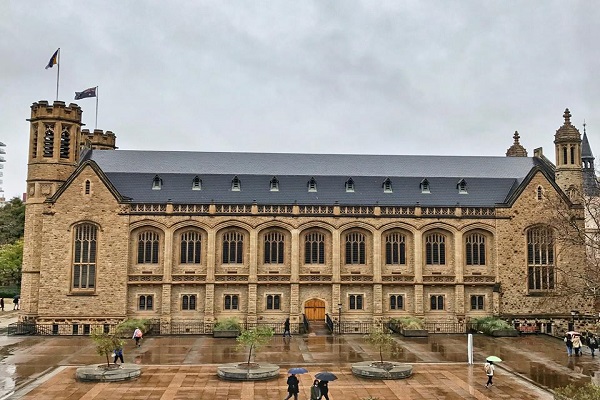University of Adelaide: DECRA funding supports Uni of Adelaide research
Ten University of Adelaide research projects have received a combined $4.1 million from the Australian Research Council’s Discovery Early Career Research Award (DECRA) scheme.
The projects to receive funding are:
Dr Andrew Merdith: Earth’s mid-life crisis – Examines the state and nature of the Earth’s climate, topography, geography, erosion, carbon cycle and oxygen cycle, from one billion to 538.8 million years ago (the Neoproterozoic Era). Funding awarded: $357,299
Dr Pengtang Wang: Heterogeneous Molecular Catalysts for Carbon Dioxide Conversion – Converting carbon dioxide (CO2) into value-added fuels and chemicals. Funding awarded: $431,318
Dr Fatwa Adikusuma: Developing CRISPR Prime Editing for highly efficient precise gene editing – Improving performance in gene editing technology to generate specific genome modifications in cells and organisms. Funding awarded: $458,238
Dr Yun Liu: Bio-inspired nanomaterials with tunable drug loading and controlled release – Develop new nanotechnology strategies for advanced manufacturing. Funding awarded: $444,318
Dr Daniel Brown: Gravitational wave detectors for observing the Cosmic Dawn – Build upon research into the workings of the universe by addressing challenges facing future gravitational wave detectors. Funding awarded: $368,818
Dr Chao Ye: Developing advanced potassium-sulphur batteries for scalable energy storage – Developing atomic-level engineering of host materials for sulphur, K metal anode and solid electrolyte. Funding awarded: $420,818
Dr Junnan Hao: Designing advanced Zn-ion batteries towards practical applications – Design novel cathodes with a new-type mechanism and highly-reversible Zn anodes. Funding awarded: $456,318
Dr Amanda Choo: Facilitating control of Queensland fruit fly and other insect pests – Developing a male-only sterile release strain for fruit flies. Funding awarded: $423,659
Dr Wenhao Ren: Cooperative Single Atom Catalysts for Zn-CO2 Batteries – Develop carbon-neutral CO2 electrolysers with low cost and high energy efficiency. Funding awarded: $394,318
Dr George Opie: Investigating neuronal oscillations and motor function in adults – Identify changes in brain function that contribute to age-related reductions in movement control. Funding awarded: $435,298
In addition, Dr Andy Boes – who joined the University of Adelaide from the Royal Melbourne Institute of Technology (RMIT) in April – was awarded $456,354 for his project, “Precision Rulers for the Visible – Chip Scale Optical Frequency Combs”, which aims to create a photonic chip technology that will produce extremely accurate measurements.
“These projects are shining examples of the type of ground-breaking research that is occurring at the University of Adelaide,” Professor Anton Middelberg, Deputy Vice-Chancellor (Research) said.
“Finding solutions to some of the world’s most pressing challenges is at the forefront of what we as a global institution aim to achieve.”

